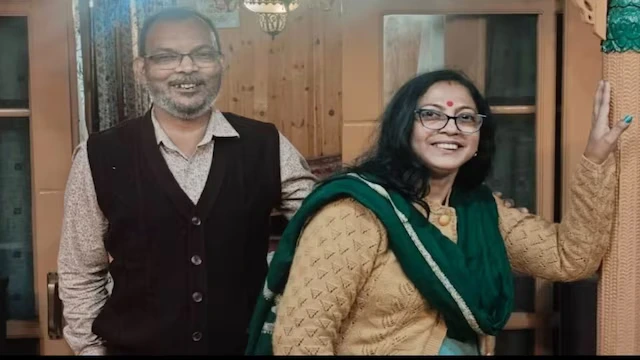Professor Debasish Bhattacharyaa from Assam University, Silchar, was on a family vacation in Pahalgam when a peaceful day in the scenic Baisaran meadows turned into a nightmare. As gunmen stormed the popular tourist spot and opened fire, Bhattacharyaa and his family suddenly found themselves in the midst of a deadly terrorist attack. In a moment of crisis, his quick thinking and knowledge of the ‘Kalma’ – an Islamic prayer – helped him survive when confronted by the attackers.
The attack, carried out by militants from The Resistance Front (TRF), targeted tourists with chilling precision. Survivors later recounted how the assailants demanded that men recite the ‘Kalma’ and checked for circumcision, sparing those they identified as Muslim and targeting others.
At least 28 people lost their lives in the massacre, making it one of the deadliest attacks in the region in recent years.
The Ordeal
Bhattacharyaa, his wife, and son were resting under a tree when the gunfire erupted. “We reached the area at around 2:10 pm and nearly 20 minutes later, we heard the sound of gunfire. Initially, we thought it was blank fire by forest officials, but my son saw two men getting shot,” Bhattacharyaa recalled. As panic spread, tourists around him began reciting the Kalma. Having grown up in a Muslim-majority neighborhood in Assam, Bhattacharyaa was familiar with the prayer and instinctively joined in.
His presence of mind proved lifesaving. “I was sleeping under a tree with my family when I heard everyone beside me reciting Kalma. I too started to recite the Kalma. Then one of the terrorists in camouflaged fatigues came near me and shot the person beside me on his head. Then he stooped to me and asked ‘kya kar rahe ho (what are you doing)?’ I recited the Kalma even louder. I don’t know why. He then moved away,” he recounted.
Once the gunman turned away, Bhattacharyaa seized the chance to escape. He and his family quietly slipped away from the scene, trekking for nearly two hours through the hills and following pony hoof marks to safety. “We walked uphill along with my wife and son. I crossed the fence and walked for around two hours following the hoof marks of the horse. Then we got a horse with the rider and rode back to our hotel. I still cannot believe that I am alive,” he said.
The ordeal only ended when they reached a safe area with mobile network coverage and contacted their driver, who helped them return to Srinagar. The Assam government, upon learning of the incident, immediately reached out to the family and arranged for their safe return to Silchar.
For Bhattacharyaa, the trauma of the experience is still fresh. “This was the most horrific experience of my life which will keep haunting me for the rest of my life. I am a teacher, and we read about many killings in the past. But I never imagined I’d be witnessing one. I feel thankful that my family and I survived but it was painful to see people getting shot dead,” he told reporters.
The attack has sent shockwaves across the country, not only for its brutality but for the disturbing pattern of religious profiling employed by the terrorists. Survivors and eyewitnesses confirmed that the assailants spared those who could recite the Kalma or otherwise prove their Muslim identity, while others were executed at point-blank range. This calculated targeting has raised concerns about a new, more insidious form of terrorism aimed at fracturing India’s secular fabric.
The government of Assam, led by Chief Minister Himanta Biswa Sarma, condemned the attack and ensured immediate assistance for the survivors. “This nefarious attack will be avenged and the perpetrators will not be spared… India will never forget and never forgive!” Sarma posted on social media.


